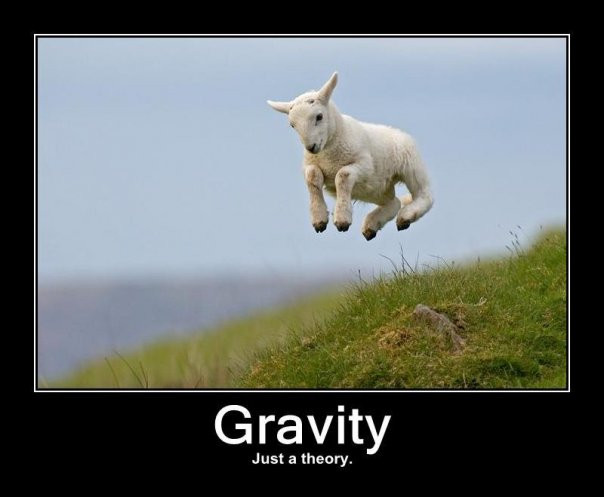Jonathan Dodd’s latest column. Guest opinion articles do not necessarily reflect the views of the publication. Ed
Here we are again, another week nearly gone by. Where do the days go? Is it possible that time is variable? Or even personal, so your time goes by faster than other people’s time? Perhaps we could start a market, or some sort of trading company, and take a slice of time for each transaction. Is it time itself that goes faster or slower, or is it the way we swim in the river of time? Perhaps time isn’t a fluid, but a succession of particles, each of which can be expanded or shrunk, like those little bags of crystals that soak up water from the air.
I’ve been thinking about disruptive technology. I once read a lovely science fiction novel, whose title and author I shamefully forgot, and I’ve just spent hours searching for it on the Internet. All I had to go on was that it had a title that didn’t really match the content, and it was written in the 60s or the 70s. I had no idea how many SF novels were written during that period, even though I probably read most of them.
An author with a light touch and a lot of good ideas
I finally found it. It’s called ‘In Our Hands the Stars’, by Harry Harrison, an author with a light touch and a lot of good ideas. He also wrote a series of books featuring the ‘Stainless Steel Rat’. I remember one particular scene, involving an interview with a bad-tempered steam-driven robot, which had to keep breaking off to feed coal into its innards. Those were the days.
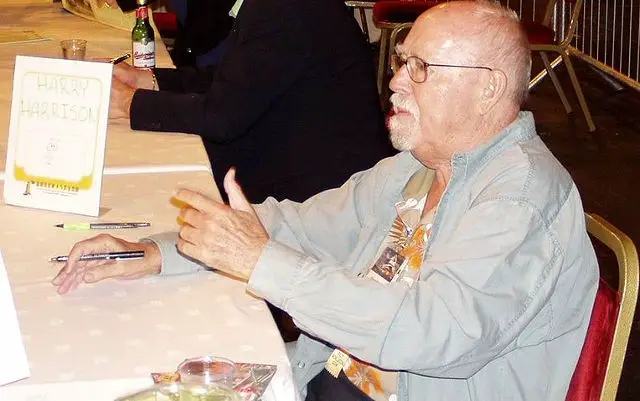
The story was about an Israeli scientist who was working on a machine in a lab. There was an explosion, and he disappeared. It turned out that he had invented a way of reversing gravity. The apparatus he was building shot through the ceiling because it was now less than weightless, and he realised very quickly that he could be in big trouble. The technology that he had accidentally invented could be a force for progress, or it could be stolen and used for evil ends. So he went to Denmark, because he thought the Danes were very peaceful.
The book’s not about the plot
OK. So the plot doesn’t seem very believable or original yet. But the book’s not about the plot. While he was in Denmark, working in a safe and secret lab with Danish scientists, there was an accident in Space which was going to cause the slow and painful death of various American and Russian astronauts. My hero realised that he could help, and it just happened that Denmark had a state-of-the-art deep-sea submersible handy, so he rigged up his machine in it, and floated up to Space to find the astronauts and rescue them. There were bad guys, and sabotage, but my hero and his intrepid Danish helpers finally rescued everyone, and a new era of Space exploration and World Peace was announced.

I know. That’s far-fetched. But in its defence, it was a work of Science Fiction. When I read it, I was thrilled with the idea that you could make a machine and go upwards, or downwards, without needing to use up huge amounts of precious fuel. I realised at once that this would mean the end of the car industry, and people would be able to live and travel anywhere, because gravity would no longer be an issue. My young heart thrilled at all the possibilities.
An idea becomes a dream, becomes research, becomes a programme
I realise that there are two kinds of people in the world. Those who think all this is a waste of time, and the geeks, or nerds, or fans, who love it all, and want it to happen as soon as possible. I understand this. Both sides have their uses and their limitations. But there was a time when science fiction really was fantasy. The idea of shooting a big shell from a gun, that would land on the Moon, was ridiculous, because the technology that would be needed hadn’t been invented. I understand that. But Jules Verne caused a lot of people to start dreaming about going to the Moon, and they started to think about how we could do it. The idea led to a dream, which turned into research, then a programme, and here we are, with an International Space Station, manned by Americans and Russians. And sometimes the odd Brit.

This is my point. It started with an idea, like all the great things mankind has achieved. It’s the job of certain people to have those ideas. That’s their skill set, and they’re good at it. Then we need dreamers, who take the idea and weave wonderful stories and imaginary futures where these ideas can be seen to be working. And they populate their stories with people who are familiar with the ideas that have become part of their lives. These are the writers and film directors and actors, and their skills are needed too. I imagine a story-teller, thousands of years ago, telling his folk tales around the camp fire to an enthralled audience, might have dreamed of finding a way to save these stories and pass them on. I rather think that writing was invented for that purpose, rather than trade or business, and early hunters invented art when they drew the beasts they hunted on the walls of their cave, to celebrate and boast.
We run towards the future
Young people read these stories and are inspired and excited by them. Some of them go on to become scientists and engineers, and astronauts. They dream of going to Space and conquering those new worlds. Some become rich and invest in new technology and industries, like Elon Musk. The inspiration becomes the programme, and we run towards the future. The gap between the idea, the dream, and the reality is getting shorter and shorter. It’s exciting. Or maybe it’s frightening.
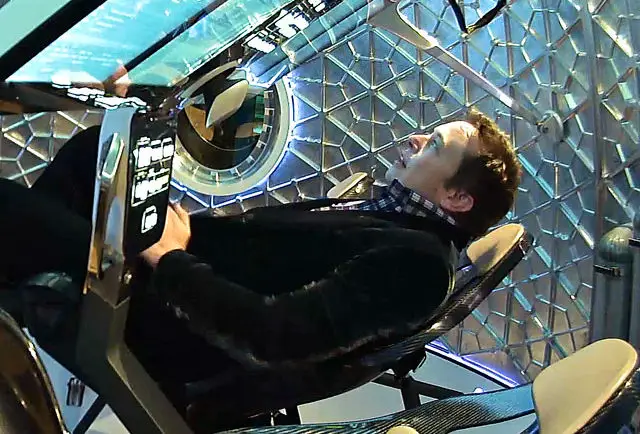
I imagine that every science fiction writer must be aware that there will be people who will read their work and want to make the product of their imagination into real things. I imagine that large technology companies will employ people who will read these books and watch these films, and start to design them, to find out how they could work and what they could be used for. I imagine whole new industries and techniques arising through this process, that will go so far beyond what we know and think about here and now, and they’ll grow so fast, and most of us will be left behind. I used to think none of this would happen in my lifetime, and I’m not so sure any more.
There’s hardly any wilderness left
Some people might be frightened by this. It can feel a bit like being swept away by some sort of technological tsunami. It used to be possible to do the equivalent of going to live in a cabin in the woods and ignoring everything, but I don’t even think we could do that any more. We can live almost anywhere now. In Space, deep beneath the sea, in the Antarctic, because of the technology, and we’re taking it everywhere. There’s hardly any wilderness left.

One of the things we humans are very good at is using our tools. Whether it’s a flint tool, or a hammer, or a spaceship, we stop wondering about how marvellous this stuff is, and we just get used to it. The gap between the initial astonishment and the frustration when we realise it’s not as brilliant as we wanted it to be is getting shorter and shorter as well. I remember the telephone on the little table in our hallway, and how all phone calls were timed by anxious parents because of the cost. I remember the fear of wasting money. That all seems to have gone forever. We think nothing of talking in real-time with family members in Australia, or even in orbit, and we complain bitterly if our high-definition videos start pixilating slightly.
All this pushing for more and better development never goes smoothly
I don’t think there’s ever been a time when things happened so fast and so completely and so often. And we seem to be taking it in our stride pretty well. I love human beings. We have such a capacity for accepting new stuff and then complaining about the quality of the miracles.
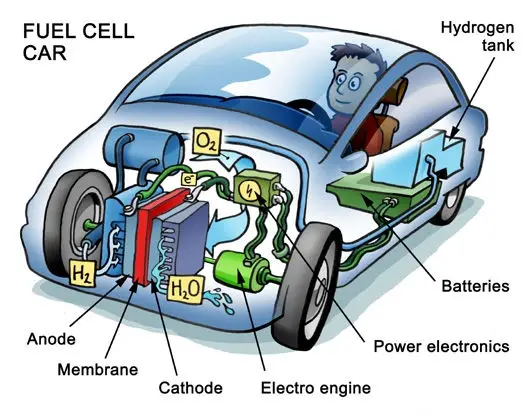
The thing that interests me here is that all this pushing for more and better development never goes smoothly, partly because things don’t, and also because of disruptive technology. My example of the anti-gravity machine would be just such a thing. All those people working furiously on electric cars, because they expect petrol to run out after becoming very expensive and unpopular, are probably worrying about the people working on hydrogen cars, which would make electric cars a bit redundant. And those people are worrying about the fusion people, who are probably worried about other people I don’t even know about, who are probably worried about imaginary people working on things that nobody has even thought of yet. But someone somewhere is writing that novel right now.
A way to travel without having to go anywhere
This is the disruptive stuff, that makes what you’ve spent a lot of time and money working on pretty much redundant before you’ve even finished. On a very small scale, I remember when video came out, and there were three formats. The Phillips/Grundig version was dead in the water, even though it was the best, because they were too late. Sony Beta was better than VHS, but they lost out because the VHS companies sewed up a deal with the rental market from the start. That was a new concept at the start of this technological revolution, where speed and business expertise are of the utmost importance, and the stakes are very high.

My own particular idea for disruptive technology is that one day we’ll find a way to travel without having to go anywhere. The only thing that we know of right now which is faster than light is the speed of the imagination. We can imagine ourselves anywhere in the universe instantly. If we could find a way to imagine ourselves in a body or vehicle in another place, and that place exists, and that body or vehicle exists, then we could travel without travelling.
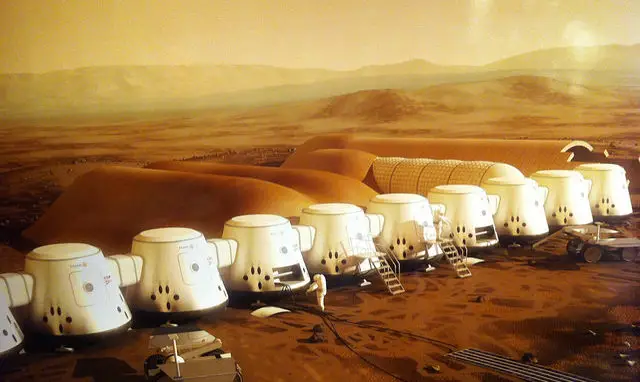
That would certainly disrupt all those countries and companies queueing up to colonise Mars.
If you have been, thank you for reading this, and if you’re inspired to develop any of this technology, just remember that it was my idea first. I want a slice of the royalties.
Image: themadlolscientist under CC BY 2.0
Image: Szymon Sokol under CC BY 2.0
Image: Johntex under CC BY 2.0
Image: NASA under CC BY 2.0
Image: under CC BY 2.0
Image: pixabay under CC BY 2.0
Image: Welleman under CC BY 2.0
Image: Helsinki Art Museum, The Broad under CC BY 2.0
Image: perolofforsberg under CC BY 2.0

